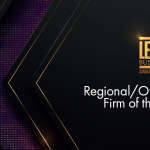Innovation lies at the core of technology. Evolution and improvement in the ways we design and use basic utilities and infrastructure such as telecoms, water and energy are key to ensuring perennial and adaptable services for an ever-growing global population.
It is inevitable to even the luddites among us that fast-paced technology will always be ahead of slower-paced legislative and regulatory processes. Our legislators acknowledge this and attempt to ensure that legislation is flexible enough to provide a sufficiently certain framework for today, while being careful to not stifle tomorrow’s innovation.
In reality, we must ask ourselves if this translates into frameworks that are continuously fit for the nature of the industries they govern. The answer is only if legislators are conscious of major movements in both technology and the consumption preferences of consumers, and work with them.
Europe’s framework is showing signs of failing to keep up with the needs of consumers. Its service-oriented approach to regulation has, until now, ensured that competitors are free to provide telecoms and content services over a variety of platforms, such as the internet or satellite, in contrast with other jurisdictions where the legality of services is still very much linked to the method of transmission.
This welcome flexibility does, however, introduce some uncertainty. An example of this arises when over-the-top (OTT) services such as Skype and WhatsApp – considered by the current framework to be data services – become suspiciously similar to traditional voice services, yet bear none of the regulation imposed on the latter.
The impact of other OTT services – including Netflix, YouTube and Facebook – is also an issue that Ofcom has accepted needs to be addressed. Ten years since its last strategic review, Ofcom has initiated a fresh review in order to redefine and recalibrate its objectives, to ensure they are in sync with today’s vastly different market. This is a welcome move.
Of no surprise is the fact that the internet and OTT services form part of this review, against a framework that has changed little in the past decade. Ofcom’s chief executive has said that the organisation will be examining ‘if there is scope for a lighter approach, given the entry of newer players and technology that we wouldn’t have dreamt of a few years ago’. In other words, not even the regulator could predict the speed of recent technological shifts.
The ongoing clash between pirates, consumers and the content industry has not resulted in either side being able to assert its model as the norm. Instead, consumers continue to consume media content through a variety of models, namely: legal streaming content platforms such as Netflix, Amazon, iTunes and Spotify; illegal sharing online; and the classic model of hard copies for a per-unit price.
Attempts at shifting the balance of law in favour of the content industry (court orders for website blocking and IP account identity disclosure) are easily circumvented and generally fail to understand the motivations of everyday consumers who wish to consume content anywhere, any time and not within the geographic and technological limitations that content providers would like to impose.
As such, the present legal framework governing intellectual property is ill-equipped to deal with the technology and the motivations that allow users to defeat its purpose, and this trend will only continue unless changes to both business models and legislation are introduced in a complementary fashion. There is work to be done both here and on the upcoming adoption of machine-to-machine technologies allowing the connectivity of huge numbers of goods – the so-called ‘internet of things’.
It is in this environment, where law meets fast-moving technology, that we, as lawyers, need to be equipped to provide advice that goes beyond the purely legal. In these areas, we need to be prepared to provide advocacy and policy advice, as well as demonstrating an understanding of consumer behavioural economics and new business models and the emerging environment. And the regulators need to find ways to keep up.
Stephen Gibb is chief executive at Shepherd and Wedderburn













